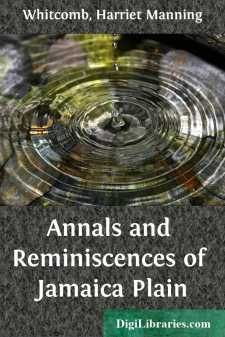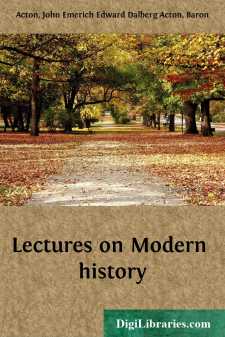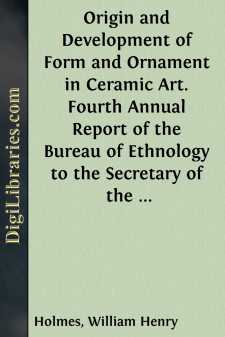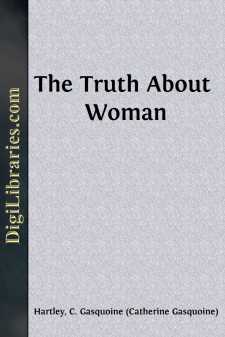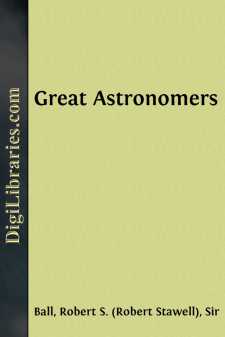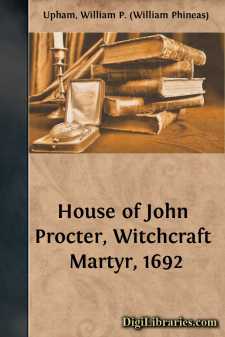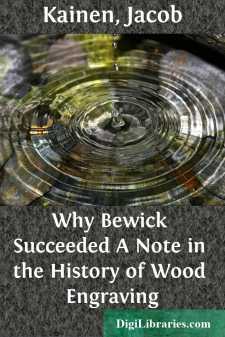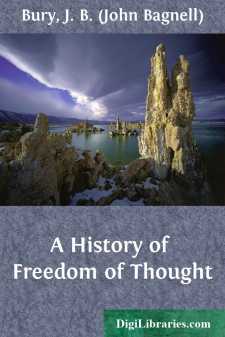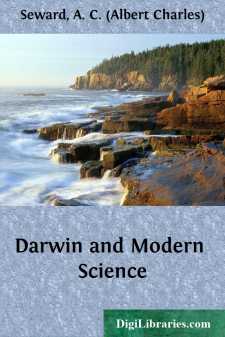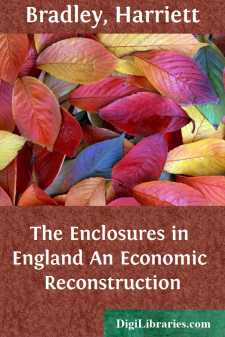History
- Africa 30
- Americas (North Central South West Indies) 50
- Ancient 68
- Asia 58
- Australia & New Zealand 8
- Canada 41
- Caribbean & West Indies 1
- Civilization 20
- Eastern Europe 12
- Europe 310
- Expeditions & Discoveries 60
- General
- Historical Geography 1
- Jewish 9
- Latin America 3
- Medieval 8
- Middle East 13
- Military 248
- Revolutionary 8
- Study & Teaching 5
- United States 353
- Western Europe 56
- World 13
General Books
Sort by:
This sketch was prepared by request to be read before the Jamaica Plain Ladies' Tuesday Club. Subsequently a desire was expressed to have it put in a more permanent form and offered for sale at a Fair for the Jamaica Plain Indian Association. Although personally reluctant to appear before the public in this way, I have allowed my desire to aid a good cause and give pleasure to my friends who have...
more...
INAUGURAL LECTURE ON THE STUDY OF HISTORY Delivered at Cambridge, June 1895 FELLOW STUDENTS—I look back today to a time before the middle of the century, when I was reading at Edinburgh and fervently wishing to come to this University. At three colleges I applied for admission, and, as things then were, I was refused by all. Here, from the first, I vainly fixed my hopes, and here, in a happier hour,...
more...
INTRODUCTORY. For the investigation of art in its early stages and in its widest sense—there is probably no fairer field than that afforded by aboriginal America, ancient and modern. At the period of discovery, art at a number of places on the American continent seems to have been developing surely and steadily, through the force of the innate genius of the race, and the more advanced nations were...
more...
PREFACE It is very difficult to write a preface to a work which is expressly intended as a revelation of the faith of the writer. The successive stages of thought and emotion that have been passed through are still too near, and one feels too deeply. I have made several futile attempts to concentrate into a short note the Truths about Woman that I have tried to convey in my book. I find it impossible...
more...
Of all the natural sciences there is not one which offers such sublime objects to the attention of the inquirer as does the science of astronomy. From the earliest ages the study of the stars has exercised the same fascination as it possesses at the present day. Among the most primitive peoples, the movements of the sun, the moon, and the stars commanded attention from their supposed influence on human...
more...
It is now nearly forty years since I assisted my father, the late Charles W. Upham, in the preparation of his work on Salem Village and the Witchcraft tragedy of 1692, by collecting what information could be obtained from the records as to the people and their homes in that locality. In doing this I was enabled to construct a map showing the bounds of the grants and farms at that time. On that map is...
more...
by:
Jacob Kainen
The Contemporary View of Bewick After 1790, when his A general history of quadrupeds appeared with its vivid animals and its humorous and mordant tailpiece vignettes, he was hailed in terms that have hardly been matched for adulation. Certainly no mere book illustrator ever received equal acclaim. He was pronounced a great artist, a great man, an outstanding moralist and reformer, and the master of a...
more...
CHAPTER I FREEDOM OF THOUGHT AND THE FORCES AGAINST IT IT is a common saying that thought is free. A man can never be hindered from thinking whatever he chooses so long as he conceals what he thinks. The working of his mind is limited only by the bounds of his experience and the power of his imagination. But this natural liberty of private thinking is of little value. It is unsatisfactory and even...
more...
PREFACE At the suggestion of the Cambridge Philosophical Society, the Syndics of the University Press decided in March, 1908, to arrange for the publication of a series of Essays in commemoration of the Centenary of the birth of Charles Darwin and of the Fiftieth anniversary of the publication of "The Origin of Species". The preliminary arrangements were made by a committee consisting of the...
more...
by:
Harriett Bradley
INTRODUCTION The enclosure movement—the process by which the common-field system was broken down and replaced by a system of unrestricted private use—involved economic and social changes which make it one of the important subjects in English economic history. When it began, the arable fields of a community lay divided in a multitude of strips separated from each other only by borders of unplowed...
more...


